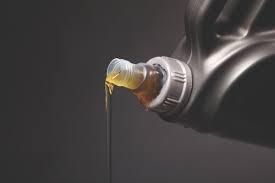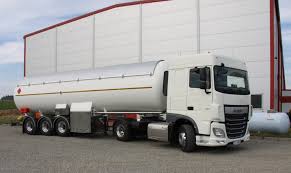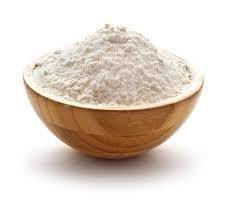Lubricant / Engine Oil (MULTI – GRADE (SAE 20W50) ) Production in Nigeria; The Feasibility Report.

Engine / Lube oil is a substance (often a liquid) introduced between two moving surfaces to reduce the friction between them, improving efficiency and reducing wear. They may also have the function of dissolving or transporting foreign particles and of distributing heat.
Lubricants today are classified into two major groups: Automotive lubricants and Industrial lubricants. One of the single largest applications for lubricants, in the form of motor oil is to protect the internal combustion engines in motor vehicles and powered equipment. Practically lube oil contain 90% base oil (most often petroleum fractions, called mineral oils) and less than 10% additives.
Vegetable oils or synthetic liquids such as hydrogenated polyolefin, esters, silicones, fluorocarbons and many others are sometimes used as base oils. Additives deliver reduced friction and wear, increased viscosity, improved viscosity index, resistance to corrosion and oxidation, aging or contamination, etc. The basic functions of a lubricant are friction and wear reduction, heat removal and contaminant suspension.
Apart from important application in internal combustion engines, vehicles and industrial gear boxes, compressors, turbines or hydraulic systems, there are vast numbers of other applications, which mostly require specifically tailored lubricants.
Nigeria has an installed production capacity about one hundred and thirty-five (135,000,000) Million litres shared among twenty (20) functional plants between the major oil marketers and independent marketers with a market turn-over in excess of N 900 billion as at 2008, and a profit margin of between N 30 and N 40 billion.
Increasing economic development and rising middle income is set to stimulate the demand for passenger and commercial vehicles in Nigeria.
This report seeks to examine the financial viability or otherwise of establishing a lube oil blending plant in Nigeria using base oil as the basic raw material.
Machinery and equipment needed includes Lube Oil Plant, Project Vehicles, Generator, Forklift, Wood Pallets, Transformer AGO storage tank and weighing scale.
A typical blending plant comprises of the following sections 1- Tank farm, 2- Blending area and 3- Storage, Filling and Packing.
Base oils from the tank farm are pumped into the blending vessels and mixed with additives at the required temperature to obtain a homogenous mix. There are several methods to achieve optimum blend depending on the product and plant requirements.
The blended product is then filtered and transferred to storage tanks from where it is taken to the filling station and packed in containers. The entire process can be carried out in a basic manually operated plant or automated pc controlled plants. The filling lines are complimented by capping and induction sealers.
The capacity of the proposed plant is one hundred (100) tons for twenty (20) hours per day. The plant would operate at seventy-five percent (75%) of the installed capacity for double (2) shifts of ten (10) hours each in the first, second, third, fourth and fifth year of operations respectively and producing 2,625 tons – 2,625,000 pcs of 1L multi-grade (SAE 20 W50) engine oil representing 70% of output, 750 tons – 187, 500 pcs of 4L multi-grade (SAE 20 W50) engine oil representing 20% of output and 375 tons – 15,000 pcs of 25L multi-grade (SAE 20 W50) engine oil representing 10% of output bi-monthly.
The total official Lube produced in Nigeria is about one hundred and thirty-five (135,000,000) Million Litres, although unofficial figures put it at two hundred and seventy (270,000,000) Million Litres per annum. Imports to Nigeria are about six (60,000,000) Million Litres annually.
The Nigerian Lube industry is presently worth N 900 billion with growth predicted at twenty-five percent (25%) in the next three (3) Years. This growth has induced many of the Lube producers in Nigeria to plan the Increase of their Blending capacity.
Table of Contents
EXECUTIVE SUMMARY 1.0 Business Overview 1.1 Description of the Business 1.2 Vision and Mission Statement 1.3 Business Objective 1.4 Value Proposition 1.5 Critical Success Factor of the Business 1.6 Current Status of Business 1.7 Description of the Business Industry 1.8 Contribution to Local and National Economy 2. Marketing Plan 2.1 Description of product 2.2 Product Packaging and delivery 2.3 The Opportunity 2.4 Pricing Strategy 2.5 Target Market 2.6 Distribution and Delivery Strategy 2.7 Promotional Strategy 2.8 Competition 3. Production Plan 3.1 Description of the Location 3.2 Raw Materials 3.3 Production Equipment 3.4 Production Process 3.5 Production Cost 3.6 Stock Control Process 3.7 Pre-Operating activities and expenses 3.7.1 Operating Activities and Expenses 3.8 Project Implementation Schedule 4.0 Organizational and Management Plan 4.1 Ownership of the business 4.2 Profile of the promoters 4.3 Key Management Staff 4.3.2 Management Support Units 4.4 Details of salary schedule 5. Financial Plan 5.1 Financial Assumption 5.2 Start- up Capital Estimation 5.3 Source of Capital 5.4 Security of Loan 5.5 Loan Repayment Plan 5.6 Profit and Loss Account 5.7 Cash Flow Analysis 5.8 Viability Analysis 6.0 Business Risks and SWOT Analysis 6.1 Business Risks 6.2 SWOT Analysis
Project Specification:
Additional Info
Get this Report
Direct bank transfer
To order the report, Please do pay the sum of ₦150,000 into
Account Name : Foraminifera Market Research Ltd
Account Number : 274 20 569 37
Account Name : Foraminifera Market Research Ltd
Account Number : 101 76 603 95
Account Name : Foraminifera Ventures
Account Number : 011 66 066 32
Make your payment directly into our bank account. Please use your Order ID as the payment reference. Your order will not be shipped until the funds have cleared in our account.
Instructions
After payment call us on 01 -29 52 413 / 08033782777 or email us at foraminiferamarketresearch@yahoo.com with the payment details. After payment confirmation, the soft copy of the report would be sent to you within 24 hours.



